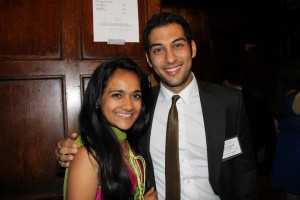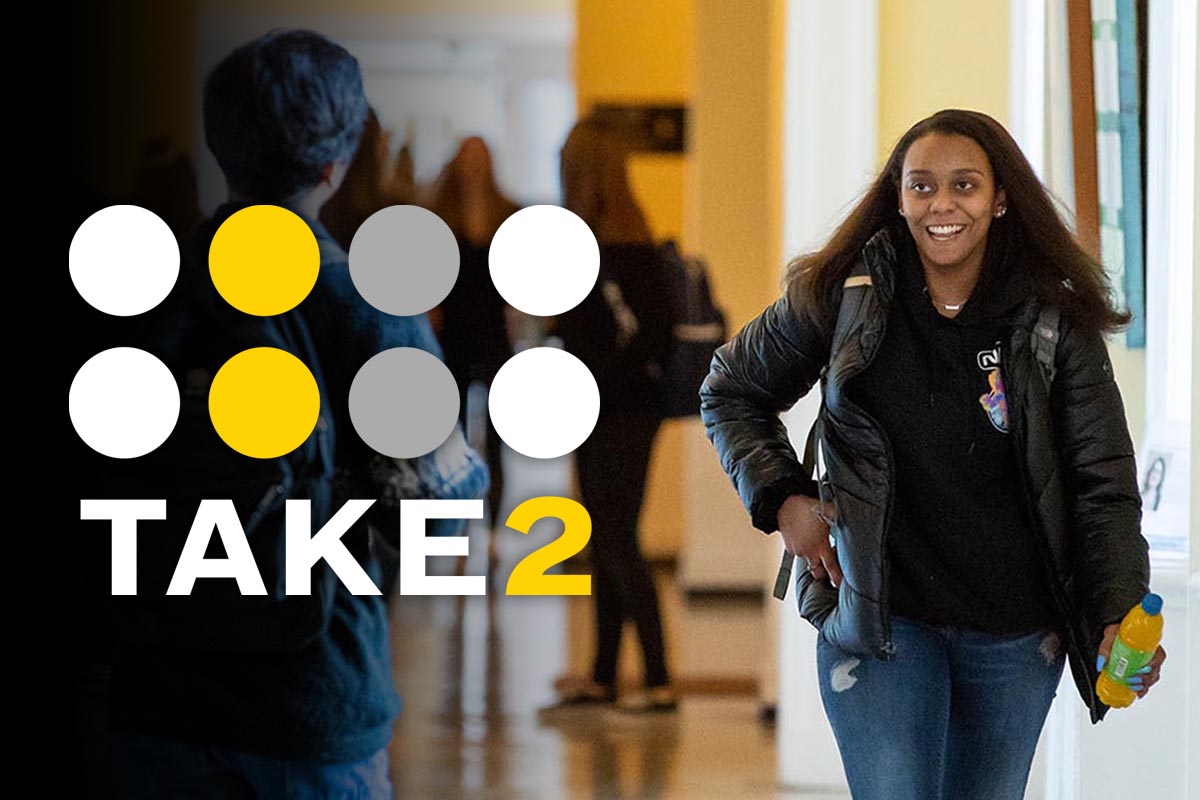Student wins awards at fast-paced international affairs conference
Over fall break, Youssef Elkei ’13 exiled a government leader, convinced a nation’s cabinet not to start a war, and was assassinated—all as a part of a government simulation at a foreign affairs conference.
Elkei represented Randolph College in the Cornell International Affairs Conference (CIAC). He served as minister of justice in a mock Egyptian cabinet during a time of emergency. The cabinet members debated issues, gave speeches, and made decisions. Then they learned about the results of those decisions and acted again.
 |
| Youssef Alkei pauses for a picture with Aishani Bansal, director-general of the organizers of the Cornell International Affairs Conference. (Photo courtesy of CIAC photographer Lindsay Levine.) |
The event had a much faster pace than other foreign affairs conferences Elkei has attended. “You use every ounce of negotiation skills that you have. You debate, you introduce amendments. It’s fast paced, more intense, and the speeches are impromptu,” he said. “If you’re not ready and you’re not engaged, you’ll miss out.”
Elkei, a global studies major, previously attended college in Cairo, Egypt, and Washington, D.C. Because he plans to graduate after the fall 2012 semester, he recognized that he would not be able to participate in Model United Nations a third time next spring. He decided to attend the CIAC to give him another chance to practice diplomatic skills.
Randolph’s Innovative Student Experience, a program that allows juniors and seniors to apply for financial support of research, creative works, and other projects related to their studies, provided the funds for Elkei’s participation.
In the crisis simulation assigned to Elkei’s committee, a group had stolen weapons from a military chemical factory. The committee debated and voted on how to respond to each development in the situation.
The panel had to make difficult decisions, such as whether to authorize enhanced interrogation tactics. Elkei voted in favor. “I thought it would help us find the perpetrators,” he said. “But as a result, one of the people being questioned died.”
Another difficult decision was whether to start a war with Israel, which, according to the simulation, had been building up its forces in what seemed like an effort to attack Egypt. The committee members debated whether to make a preemptive strike. Elkei was the last to speak, at which point only one had voted against attack.
Elkei gave a passionate speech opposing the strike. “I knew that if we went to war, we would lose,” he said. “Internationally, we would be seen as the aggressors, and we would lose militarily.” He drew upon the principles of Just War Theory, which he recalled from a class taught by Randolph professor Jennifer Dugan, to make his case. When the committee took a final vote, several people had changed their positions and voted against the strike.
Later in the simulation, Elkei was shot with a Nerf gun after a government leader he had voted to exile earlier escaped and sought revenge. He left the room and was given another role in the simulation.
Elkei’s speech against a preemptive strike was voted as the best speech in that committee. He also received an award for being one of the best delegates.
The conference allowed Elkei the chance to prove and strengthen the skills he learned at Randolph. He hopes to apply those skills and work in diplomacy or international intelligence. He believes his liberal arts education and the commitment to the honor code will serve him well. “In a liberal arts education like this, you’re more well-rounded,” he said. “I’m not coming to higher education expecting to learn how to write reports for a specific job. I’m learning how to research something, how to give a speech. These skills are the foundation which you base the rest of your professional career on.”
Tags: cornell international affairs conference, global studies, international affairs, model u.n.
